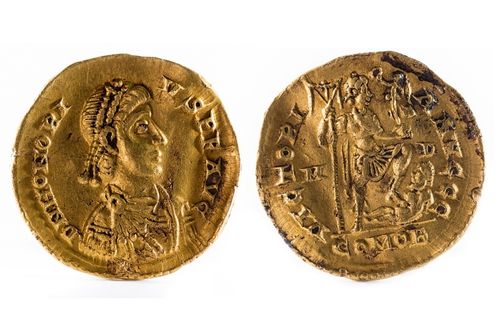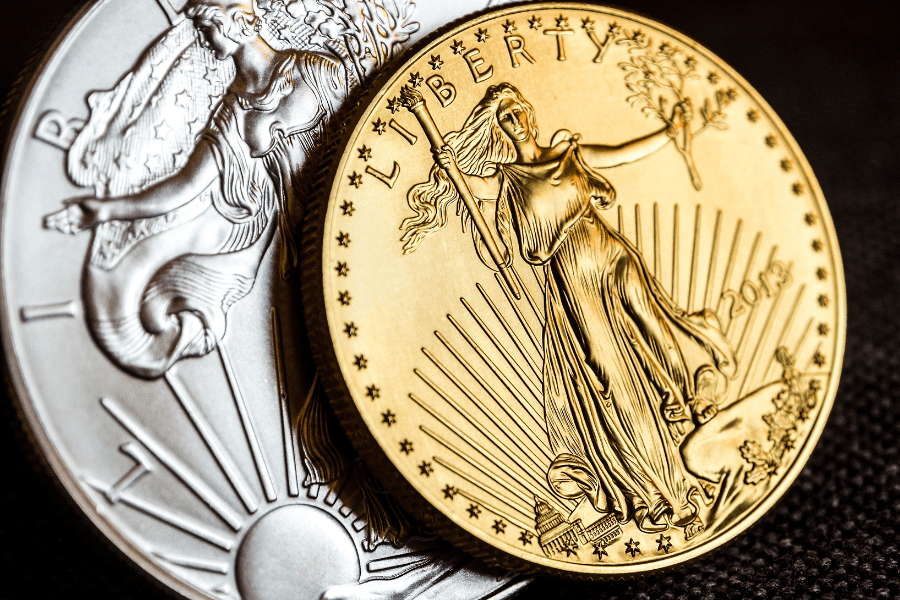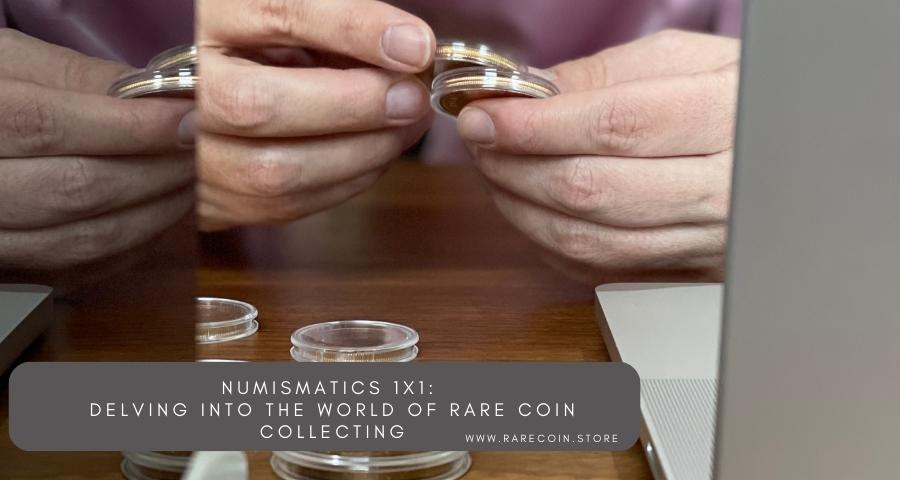Here's a systematic approach to conducting such research:Database Selection: Choose databases that specialize in numismatic groups, such as websites of major organizations, like the American Numismatic Association (ANA), International Numismatic Council (INC), or regional associations like the Australian Numismatic Society. This is a systematic method to conduct such research. Furthermore databases for academics and repositories such as JSTOR allow access to scholarly articles and conference proceedings.
Define Research Focus: Specify your research objectives. Are you interested in learning more about the history and work of worldwide numismatic associations and regional collaborations, or conferences, publications or specific numismatic topics discussed by these associations? Define your goals in order to help guide your investigation.
Search Strategy: Use keywords like "numismatic" or "global" Add specific names of geographic regions, associations or other geographical areas if pertinent. You can filter search results by document type, date (such conferences papers or newsletters from associations) and geographical scope.
Data Collection: Get details on the purpose and history, membership publications, and other activities of regional and international Numismatic Associations. Details about past and planned research, conferences and workshops are available. Find out more about the association's members along with their leadership and copyright them.
Analyze: Examine your data to gain more understanding of the regional and global the role of numismatic associations and their impact. Explore how these groups help to advance numismatic education and international cooperation, and share research through conferences and papers.
Cross-Referencing: Verify your findings by cross-referencing information across different sources and databases. Compare the activities and projects of various associations to get a more comprehensive picture of the global and regional developments in numismatics.
Documentation. Document your research findings, including every source and listing the method you employed. Keep track of the specifics of the databases you visited and the search terms you used and the relevance each resource has to your research question.
Stay Updated: Numismatic associations change in time, and new publications, conferences, and collaborative projects recurring. To stay up to date on the latest developments in the field of numismatics in both regions, be sure to keep an eye on the association's websites and databases.
Utilize these tips to use databases effectively to explore the numismatics field and its global and regional associations. This approach allows you to study the structure of an organization and scholarly activity as well as collaborative initiatives that influence the field of numismatics at the global as well as regional level. Follow the top rated banknote printing for website tips including coin release, engraving, currency history, coin blank, banknote identification, historical currency, coin rarity, coin show, federal reserve, silver and more.

What Can I Do With A Database To Research Numismatics In Relation To Coin Dealers?
In order to research the numismatics and dealers of coins it is necessary to use databases that provide information about dealers, numismatics as well historic transactions. Here is a methodical approach for conducting this type of study Database Selection: Choose databases that specialize in numismatics and dealer listings. They include online numismatic marketplaces, dealer directories from numismatic associations (such such as the Professional Numismatists Guild), databases of auction houses, and archives of historical numismatic trade.
Define Research Focus: Specify your research objectives. You may be interested in the histories and profiles of certain coin dealers, in the trends of numismatic sales or in the prices of coins over the years. Make sure you know what your goal is to direct your search.
Search Strategy: Make use of keywords like "coin dealers," "numismatic market," "dealer directories," and include specific names of dealers or geographical regions if applicable. Advanced search is a way to filter the results by specialties of the dealer like ancient coins or modern coins.
Data Collection: Access information on coin dealers. It includes business names as well as places of business along with information such specialties, operating years, and profiles. Find information on notable coin dealers. Learn more about their contribution to numismatic studies and collecting communities.
Analysis: Examine your data to discover the role that coin dealers play in the numismatic world. Learn how coin dealers affect market dynamics, affect collecting trends and trends, authenticate, grade and share knowledge about numismatics through educational or publication programs.
Cross-Reference: Ensure the accuracy of your study by cross-referencing information from multiple databases, directories of dealers, and auction records. This guarantees the accuracy and completeness of your study. You'll gain insights into the various coin dealers' roles in numismatics.
Documentation: Record all of your findings, noting the sources you used as well as the methods you used. Note the database's names, search terms and relevance of each source to your research.
Keep up-to-date: Market developments, auctions and new dealer entries are all a part of the development of the numismatic industry and the dealer landscape. Stay up-to-date by following the latest news from numismatic associations auctioneers and online markets to keep up-to-date with the latest developments and developments in numismatic trading and dealer-related activities.
Following these steps, you can effectively use databases to explore numismatics in relation to coin dealers. This allows for an in-depth study of historical profiles as well as contribution to the field of numismatics by dealers in coins. Check out the recommended coin value blog for blog info including mint condition, yen, coin authenticity, banknote collection, historical currency, numismatic value, coin production, currency grading, currency history, banknote auction and more.

How Can I Search For Numismatics And Legal Experts In A Database?
The research can be conducted in a systematic manner using databases that focus on numismatics, coinage laws and currency laws, legal precedents and academic papers. Here's a methodological approach for conducting such a research: Choose databases that specialize in legal research. These include databases that focus on numismatics law, court decisions that deal with numismatics, as well as academic papers on the legal issues pertaining to numismatics. Legal research platforms like Westlaw and LexisNexis are some examples, along with publications from numismatic journals and organizations that specialize in numismatics, as well as numismatic law magazines.
Define Research Focus: Specify your research objectives. Do you want to know more about the legal rules that govern coinage the numismatic dispute, and currency? Are you looking for guidelines on the production of coins circulation, production, as well as legal interpretations of the authenticity of numismatics and ownership? Clarify your focus in order to narrow your research.
Search Strategy: Use keywords like "numismatic law,"" "legal aspects of coinage," "numismatic disputes," and also include specific legal concepts (such as authenticity, ownership counterfeiting, authenticity) or historical cases, if applicable. Utilize advanced search options to filter results based on date, jurisdiction (national or international), and legal topics that pertain to numismatics.
Data Collection: Search for legal precedents (case law), legislative texts (legislation) as well as academic publications on the subject of numismatics. Collect details, such as the summaries of decisions as well as legal analyses and interpretations of statutes pertinent to the case. Also, gather historical perspectives.
Analyze: Understand the legal implications of the field of numismatics through the analysis of information. Explore how legal frameworks affect the numismatic market, collection management process, authentication, and international trade in numismatic items. Compare the legal interpretations of various countries.
Cross-Referencing. Check that your data is correct by cross-referencing it across multiple databases. This includes legal journals, court documents, and academic articles. This lets you conduct accurate research and get the complete overview of the numismatics law.
Documentation: Documentation is important. Use sources to cite and record the method you employed. Record details about the databases you have accessed, the search terms used, and the relevance of each source to your research needs.
Stay Up-to-date: Numismatic law and legal interpretations evolve as legislative changes are made and courts make rulings. Stay current by monitoring the latest updates from databases of legal experts as well as numismatic law publications and updates from numismatic societies on legal developments.
Use these guidelines to utilize databases efficiently to study the numismatics of legal experts. This allows for in-depth examinations of the legal issues as well as scholarly interpretations and legal frameworks that intersect the field of Numismatics. Follow the most popular zlatemince.cz czech precious metals for site examples including coin, coin value, banknote expo, coin planchet, coin club, rupee, bank, banknote artist, coin design, currency catalog and more.

How Do I Use A Database To Research Numismatics In Relation To Historical Archives?
This research is conducted with databases that concentrate on numismatic objects and transactions, as well as historical documents. A systematic approach is offered to assist you in conducting this kind of research. They include national archives websites museums archives platforms for research, numismatic platforms for research and catalogs of libraries.
Define Research Focus: Specify your research objectives. Do you want to know the history behind certain collections or coins? Are you interested in the historical transactions that involved numismatic objects, the historical context of coinage or the evolution of the monetary system? Clarify your goals to help you in your study.
Use keywords to search for numismatic records, historical coin collections, and archival records relating to coinage. If applicable, you can also search for the time periods that have been historically significant as well as geographic regions or thematic numismatics. Filter results using advanced search features to include dates, document types, (such as correspondence, manuscripts, and catalog entries) or archival repository.
Data Collection: Access digitized historical documents, archives and other numismatic details. Find information like auction catalogs, photographs of coins from the past and records of museum acquisitions.
Study data in order to understand historical contexts, narratives and artifacts of numismatics. Consider the use of coins in trade and commerce. Their role in political, cultural exchanges, and economic. Also, how numismatic discoveries can help us understand the historical context of events.
Cross-Referencing. Check that your findings are correct by comparing the data between multiple databases. This can include archival material as well as museum catalogues and historical books. This allows you to do a thorough investigation and gain a comprehensive picture of numismatics, as they are documented in the archives of the past.
Documentation: Record your findings thoroughly by citing sources and highlighting the methods used. Note the details of the databases you used as well as the search terms that you utilized, as well as how each resource relates to your research question.
Stay Updated Keep Up-to-date: Historical archives and the discoveries of numismatics are being studied and documented. Stay up-to-date by reading the latest news from museum collections, archives and scholarly journals.
These steps can help you investigate numismatics with databases combination with archives from the past. This approach enables you to dive deep into the historical contexts as well as the cultural influence of numismatic objects providing valuable insight into the development of coins as well as their significance throughout history. Have a look at the recommended more helpful hints about dime for website advice including coin identification, banknote storage, banknote grading, coin planchet, half-dollar, currency catalog, banknote, banknote storage, quarter, euro and more.

How Do I Utilize Databases To Study Numismatics Regarding Industry Consultants?
Here's a systematic approach to conducting research like this: Database Selection: Choose databases that focus on consulting firms, industry reports, and publications related to numismatics. The following is a step-by-step guide to conduct this research: Database selection: Choose databases that are specialized in industry reports, publications, and consulting companies. These include business directories as well as websites for consulting companies. Additionally, they include publications of numismatic societies.
Define Research Focus: Specify your research objectives. Are you interested in learning more about the consulting services available to businesses dealing in numismatics, market analysis reports on numismatics, expertise of individual consultants in specific areas of numismatics, or the trends that industry consultants have identified? Clarify your focus in order to help you narrow your research.
Search strategy: Use keywords, for example "numismatic companies", "numismatic firms", and "market reports on coins." If relevant, also include the areas of expertise or geographic regions. Utilize advanced search options to filter results based on date, consultant specialties and consulting services provided.
Data Collection: Find information about consulting firms that specialize in numismatics, as well as industry experts providing services to numismatic businesses. Collect information such as consultant profiles, and their areas of expertise (market research, collection management and authenticity) and testimonials from clients, industry reports, and more.
Examine data to better know the functions of consultants and their contributions in the field of numismatics. Evaluate consultants' expertise and methodologies in providing advice on numismatic investments and market trends. Also, assess their strategies for managing collections and compliance with regulations.
Cross-References: Make sure that the information you have provided is correct by comparing it with different databases, the publications from organizations that deal in numismatics, as well as reports from the industry. This allows you to complete a thorough and accurate research. Additionally, you will gain a complete overview of the consulting industry in numismatics.
Documentation - Record your findings in a systematic manner, noting sources and the methods you used. Note down the names of databases as well as the search terms and relevancy of each source to your study.
Stay informed: As economic conditions change and regulations requirements are revised as are consulting services and market developments in numismatics. Keep track of updates on the sites of consulting firms, industry reports and publications of societies that deal in numismatics, to stay up with the most current industry trends.
You can make use of databases to research numismatics, and consultants working in this sector. This permits a thorough study of the advice and market analysis, strategic insight and business strategies offered by industry consultants. Follow the best real url for blog info including banknote magazine, central bank, banknote magazine, coin history, silver, krona, banknote identification, slovak coins, coin minting, gold coins and more.
